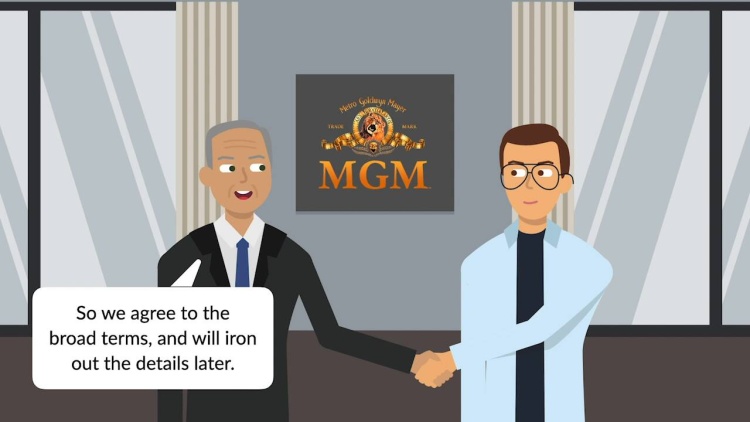Metro-Goldwyn-Mayer, Inc. v. Scheider
New York Court of Appeals
360 N.E.2d 930, 40 N.Y.2d 1069 (1976)
- Written by Jamie Milne, JD
Facts
Producer Metro-Goldwyn-Mayer, Inc. (MGM) (plaintiff) planned to film a new television show. MGM hired actor Roy Scheider (defendant) to play the lead role in the pilot episode and then in the series if the show was commissioned by a network. In September 1971, the parties orally agreed to general terms and finances. Additional terms were negotiated while the pilot was filmed, with supplemental oral agreements being reached by February 1972. However, there was no agreement as to the start date for filming the series if it was commissioned. After filming the pilot, Scheider refused to film the series. MGM sued Scheider for breach of contract, seeking both damages and an injunction preventing Scheider from working for third parties during the period he should have been rendering services to MGM. Scheider countered that there was no enforceable contract to film the series because the parties never agreed to a start date for filming. Standard industry practice was that if a pilot was shown to a network in the winter, then it was expected to appear on television the following fall if commissioned. Both parties were aware of that custom and that filming for a fall show needed to start no later than June. The trial court originally concluded that there was a contract with industry custom supplying the missing term as to the start date. However, the court also found that the statute of frauds required that the agreement be in writing. Consequently, the parties’ oral agreement was unenforceable. The appellate division found the statute of frauds inapplicable and modified the trial court’s judgment to grant MGM the requested injunction. Scheider appealed to the New York Court of Appeals.
Rule of Law
Issue
Holding and Reasoning (Per curiam)
What to do next…
Here's why 907,000 law students have relied on our case briefs:
- Written by law professors and practitioners, not other law students. 47,100 briefs, keyed to 996 casebooks. Top-notch customer support.
- The right amount of information, includes the facts, issues, rule of law, holding and reasoning, and any concurrences and dissents.
- Access in your classes, works on your mobile and tablet. Massive library of related video lessons and high quality multiple-choice questions.
- Easy to use, uniform format for every case brief. Written in plain English, not in legalese. Our briefs summarize and simplify; they don’t just repeat the court’s language.





